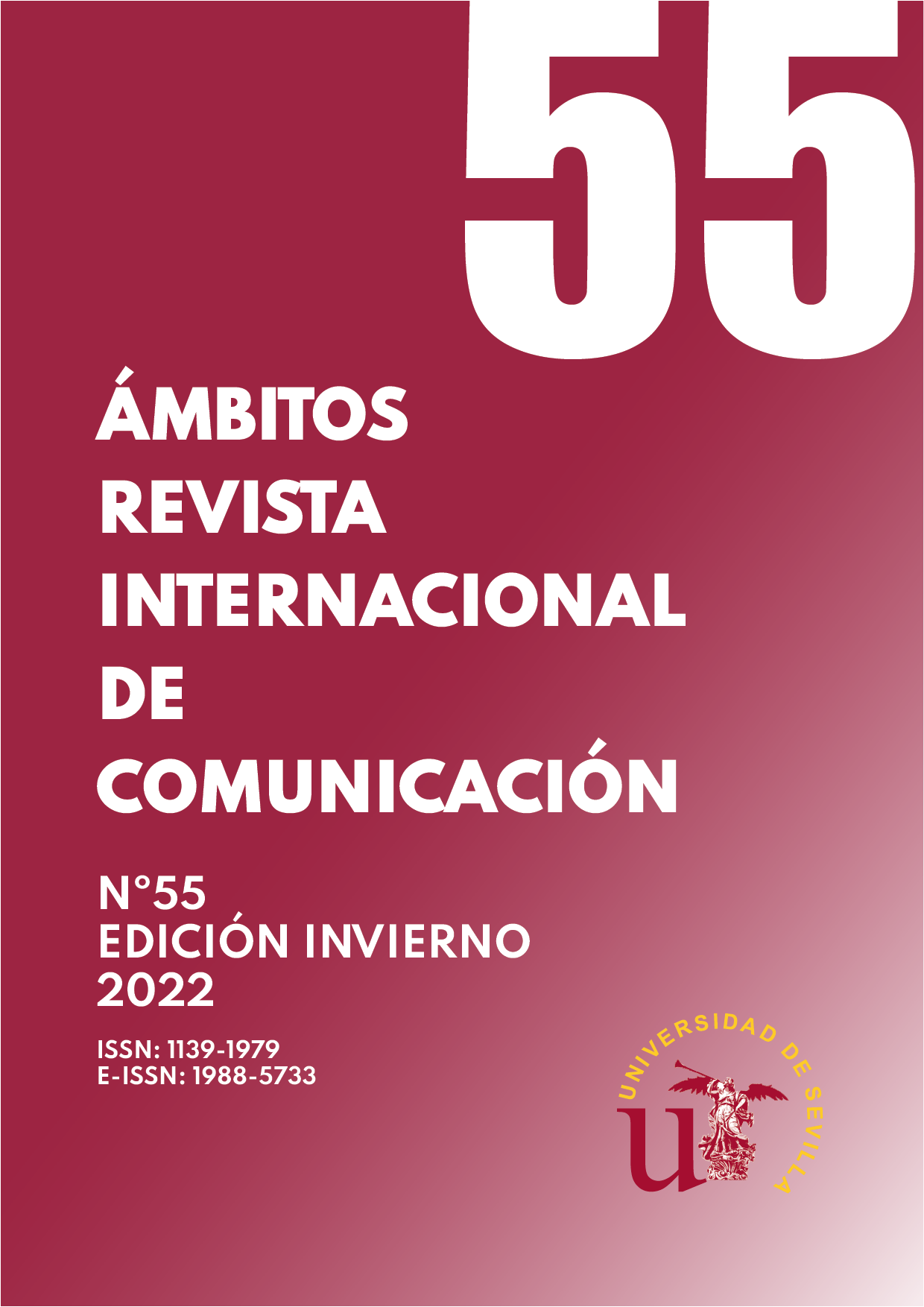Minority languages in the Information Society. Cartography, revitalization and learning of Aragonese on virtual environments
DOI:
https://doi.org/10.12795/Ambitos.2022.i55.06Keywords:
ICT, social media, virtual learning environments, minority languages, language revitalizationAbstract
This paper analyzes the current situation of the Aragonese language on the Web; a minority language that, according to UNESCO, is threatened with extinction. However, thanks to the Internet and the development of Web 2.0, minority languages such as Aragonese have new opportunities for revitalization. The objective is to understand how new technologies and the Internet positively impact on its visibility and contribute to prevent their decline. To this end, the research, which is eminently qualitative, is conducted from two different approaches. From a communicative perspective, the aim is to discover the presence, use and spread of Aragonese in virtual platforms. Secondly, from an educational perspective, this research analyzes the possibilities of learning this language in these digital spaces. Our results show that the
Aragonese language is increasingly present on the Internet and that in recent years its presence in virtual platforms has increased, which can dignify it and facilitate its visibility. In contrast, its use in digital media is very low. In the same vein, this study observes that there are few opportunities to learn this language online. This task is certainly laborious and complicated due to the limited number of websites where digital educational resources can be found.
Downloads
References
Belmar, G. (2020). ¿Pueden las lenguas minorizadas respirar tranquilas en las redes sociales? El papel de las comunidades virtuales como refugios de uso a través de la observación de un grupo de Facebook para hablantes de aragonés. Études romanes de Brno, 1, 113-124. https://doi.org/10.5817/ERB2020-1-8
Belmar, G. & Glass, M. (2019). Virtual communities as breathing spaces for minority languages: re-framing language use in social media. Adeptus, 14, 1–24. https://doi.org/10.11649/a.1968
Callejo, J. y Viedma, A. (2005). Proyectos y estrategias de investigación social. Mc Graw Hill.
Campos-Bandrés, I.O. (2015). Las NTIC en la conservación de las lenguas minoritarias. Una investigación – acción en el ámbito educativo. UT. Revista de Ciències de l’Educació, 1, 64-82. https://cutt.ly/Smk5Mjz
Consejo De Europa (1992). Carta Europea de las Lenguas Minoritarias o Regionales. Recuperado de https://cutt.ly/PmkBFZZ
Crystal, D. (2000). Language Death. Cambridge University Press.
Gil-Ramírez, M. & Gómez de Travesedo-Rojas, R. (2018). Uso del smartphone en el periodismo actual: ¿hacia un nuevo modelo mediático? Estudio de caso del contexto malagueño. Ámbitos. Revista Internacional de Comunicación, 2(41), 5-21. https://cutt.ly/dR1lVlL
Iñesta-Fernández, N. & Sixto-García, J. (2020). Redes sociales, convergencia y narrativas transmedia en la promoción de las Islas Canarias. Ámbitos. Revista Internacional de Comunicación, 48, 148-170. https://doi.org/10.12795/Ambitos.2020.i48.08
Moseley, C. (ed.) (2010). Atlas de las Lenguas del Mundo en Peligro 2010. UNESCO.
Ovide, E. (2008). Desde la diversidad hacia la desigualdad: ¿destino inexorable de la globalización? Revista Electrónica Teoría de la Educación: Educación y Cultura en la Sociedad de la Información, 9(2), 5-18. https://cutt.ly/zmk52Mn
Paricio-Martín, S.J. & Martínez-Cortés, J. P. (2010). Nuevas vías de revitalización para lenguas minorizadas: la repercusión de internet en el caso del aragonés. Digithum, 0(12), 1-11. https://cutt.ly/Wmk585c
Downloads
Published
How to Cite
Issue
Section
License
Copyright (c) 2022 David García-Marín, Alejandro Ibáñez-Alcázar

This work is licensed under a Creative Commons Attribution-NonCommercial-ShareAlike 4.0 International License.
Ámbitos. Revista Internacional de Comunicación is an open access journal, which means that all content is freely available at no charge to the user or their institution. Users may read, download, copy, distribute, distribute, print, search or link to the full text of articles, or use them for any other lawful purpose, without seeking prior permission from the publisher or author. This definition of open access is in accordance with the Budapest Open Access Initiative (BOAI).

Unless otherwise noted, all content in the electronic edition is distributed under a "Creative Commons Attribution-NonCommercial-ShareAlike 4.0 International License". You can consult the informative version and legal text of the licence here. This should be expressly stated in this way where necessary.
In case of acceptance of the manuscript, the authors cede the rights of the work for its publication to Ámbitos. Revista Internacional de Comunicación under the Attribution-NonCommercial-ShareAlike 4.0 International license contract (CC BY-NC-SA 4.0). The authors retain copyright and third parties are authorised to copy, distribute and make use of the work, provided they comply with the terms and conditions set out in the licence
- Cite the authorship and the original source of publication (journal, publisher and URL of the work).
- Do not use them for commercial purposes.
- If you remix, transform or create from the material, you must release your contributions under the same license as the original.
More information can be found at https://creativecommons.org/licenses/by-nc-sa/4.0/deed.es


















